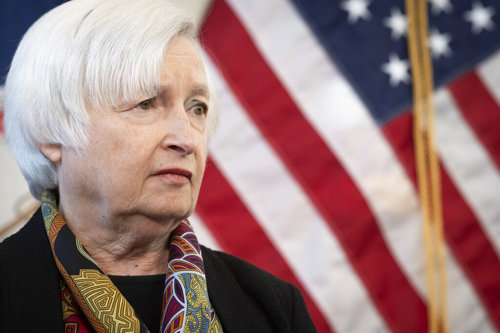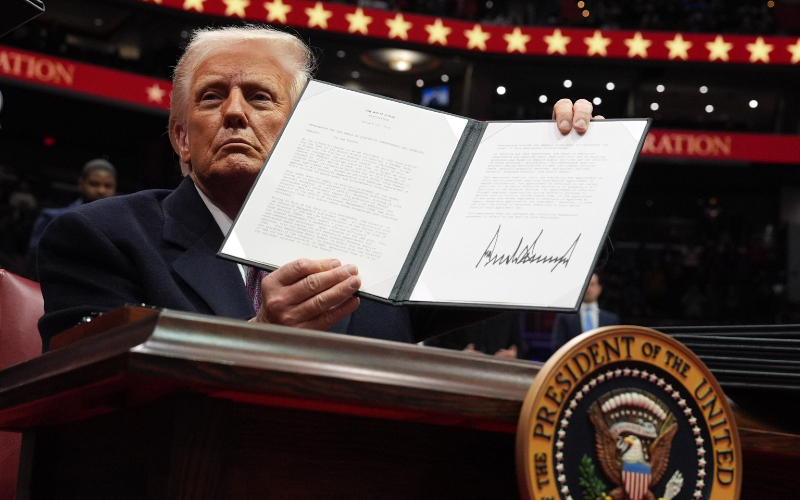"We surpassed $35 trillion, and we're headed very quickly toward $40 trillion," says David McGarry of Taxpayers Protection Alliance. "This is obviously the product of years and decades of spending more money than we take in."
Some people and politicians are of the opinion that if we raise taxes on millionaires and billionaires, we'd be able to fund the government, but McGarry does not agree.
"That simply isn't true if you look at the math."
The newly created Department of Government Efficiency (DOGE) has become a household name, due in part to Elon Musk and Vivek Ramaswamy saying after the election that the Department will focus on regulations and positions that cost taxpayers money. Still, McGarry says the majority of federal spending is driven by entitlements, things such as Social Security and Medicare.  "Unfortunately, it is the policy of the president-elect and of most republicans to essentially not touch those programs," says McGarry. "There are a lot of Americans who depend on those programs, and it is not a politically popular thing to suggest making the kinds of reforms that are actually needed."
"Unfortunately, it is the policy of the president-elect and of most republicans to essentially not touch those programs," says McGarry. "There are a lot of Americans who depend on those programs, and it is not a politically popular thing to suggest making the kinds of reforms that are actually needed."
Trump has not outlined a detailed plan to reduce the national debt in his second term.
He has proposed several measures that could impact that debt, one of them to cancel the debt ceiling altogether.
“The Democrats have said they want to get rid of it. If they want to get rid of it, I would lead the charge. It doesn’t mean anything except psychologically,” Trump said in an interview with NBC News last month.
Treasury Sec. Janet Yellen (shown above left) told Congress last week that the government is now having to take “extraordinary measures” to keep the U.S. from defaulting on its loans as it has now reached its debt ceiling – the total amount of money the federal government is authorized to borrow to pay for obligations such as Social Security and Medicare benefits, The New York Post reported.

As a result, Yellen said the government will be unable to fully invest in the Civil Service Retirement and Disability Fund and in the Postal Service Retiree Health Benefits Fund until the debt limit is increase or suspended.
“Federal retirees and employees will be unaffected by these actions,” Yellen wrote, according to The Post.
The confusion of entitlement reform
Many reform plans for entitlement programs involve changes for younger people that are paying into the programs but decades away from enrolling. Even then, entitlement reform is viewed or misinterpreted as impacting everyone when that is not necessarily the case.
Bottomline, something needs to be done about the debt. McGarry would like to see it sooner than later.
"The ultimate doomsday scenario at some point in the future is something like what happened to Greece where the United States credit blows up, and we start having complete and total restructuring of our government and our fiscal policy, and the way that we do things."







